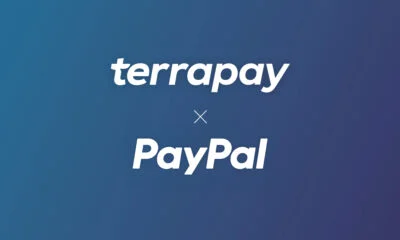News
The Top 10 Worst Cyberattacks In The Middle East Revealed
Cybersecurity firm Positive Technologies has published a list covering the last 18 months of activity.

Over the last year and a half, the Middle East has witnessed a significant rise in cyberattacks, especially those posing a serious threat to organizations across the region.
Fedor Chunizhekov, Information Security Analyst at Positive Technologies, who compiled the list, explained, “The threat to the Middle East is very much real. Rapid advancement in technology and the growing independence on the internet means that attackers have novel and innovative ways to exploit vulnerabilities”.
Let’s check out some of the region’s worst attacks in the last 18 months:
Adalat Ali
In early 2022, Iranian hacktivists Adalat Ali successfully broadcast a 50-second message on streaming service Telewebion calling for further protests against the ruling Khamenei regime.
Bezeq And Cellcom DDoS Attack
In March 2022, a state of emergency was declared after a prolonged DDoS attack leading to Israeli government agencies, including the Ministry of Health, Internal Affairs, Prime Minister’s Office, and several major media outlets losing access to various services.
Public Address Systems In Palestine
In June 2022, public address systems in Jerusalem and Eilat were compromised by unnamed hackers, leading to false air raid sirens being broadcast for an hour.
Iranian Steel Plants Attack
Again in June 2022, an attack on three Iranian steel plants by hacktivist group Goneshke Darande disrupted processes leading to a liquid pig spillage resulting in a fire that halted production.
GamkenBot Scalper Bots
Attackers created bots that found and booked all available appointments using the Israeli booking service GamkenBot, before monetizing them and generally disrupting the service.
Cellebrite Data Breach
Israeli digital data firm Cellebrite was hacked to the tune of 1.7 TB of files in a massive data breach. The files contained all manner of proprietary backup software and other important information. No one has yet claimed responsibility for the attack.
Iranian News Agency Attack
A group of hacktivists known as Black Reward Team stole around 250 TB of confidential information from Iran’s state-run Fars News in November 2022. The group also gained access to CCTV footage.
Vice Society Attack On IKEA
Ransomware group Vice Society targeted IKEA in Morocco and Kuwait in November 2022. The outlets experienced a data breach that was thought to have been facilitated through phishing emails.
Pro-Palestine Attacks On Israeli Companies
In January, the hacktivist group Electronic Quds Force launched a campaign targeting Israeli chemical production companies. Messages sent to employees told them to “Leave employment and look for a new one”. The hackers also uploaded screenshots of automated control system interfaces on their Telegram channel, proving the plant was compromised.
Irrigation System Disruption
Farm irrigation systems and wastewater treatment in the Jordan Valley were targeted by what appears to have been OpIsrael, an anti-Israel hacktivist team. The attack was successful due to weak authentication and vulnerabilities in programmable controllers, allowing the attackers to gain remote access.
In light of such a severe spate of attacks, Positive Technologies urges companies to adopt the latest technologies and security techniques to safeguard data and networks against increasingly sophisticated hacking.
News
Google Releases Veo 2 AI Video Tool To MENA Users
The state-of-the-art video generation model is now available in Gemini, offering realistic AI-generated videos with better physics, motion, and detail.

Starting today, users of Gemini Advanced in the MENA region — and globally — can tap into Veo 2, Google’s next-generation video model.
Originally unveiled in 2024, Veo 2 has now been fully integrated into Gemini, supporting multiple languages including Arabic and English. The rollout now brings Google’s most advanced video AI directly into the hands of everyday users.
Veo 2 builds on the foundations of its predecessor with a more sophisticated understanding of the physical world. It’s designed to produce high-fidelity video content with cinematic detail, realistic motion, and greater visual consistency across a wide range of subjects and styles. Whether recreating natural landscapes, human interactions, or stylized environments, the model is capable of interpreting and translating written prompts into eight-second 720p videos that feel almost handcrafted.
Users can generate content directly through the Gemini platform — either via the web or mobile apps. The experience is pretty straightforward: users enter a text-based prompt, and Veo 2 returns a video in 16:9 landscape format, delivered as an MP4 file. These aren’t just generic clips — they can reflect creative, abstract, or highly specific scenarios, making the tool especially useful for content creators, marketers, or anyone experimenting with visual storytelling.
Also Read: Getting Started With Google Gemini: A Beginner’s Guide
To ensure transparency, each video is embedded with SynthID — a digital watermark developed by Google’s DeepMind. The watermark is invisible to the human eye but persists across editing, compression, and sharing. It identifies the video as AI-generated, addressing concerns around misinformation and media authenticity.
While Veo 2 is still in its early phases of public rollout, the technology is part of a broader push by Google to democratize advanced AI tools. With text-to-image, code generation, and now video creation integrated into Gemini, Google is positioning the platform as a full-spectrum creative assistant.
Access to Veo 2 starts today and will continue expanding in the coming weeks. Interested users can try it out at gemini.google.com or through the Gemini app on Android and iOS.





















